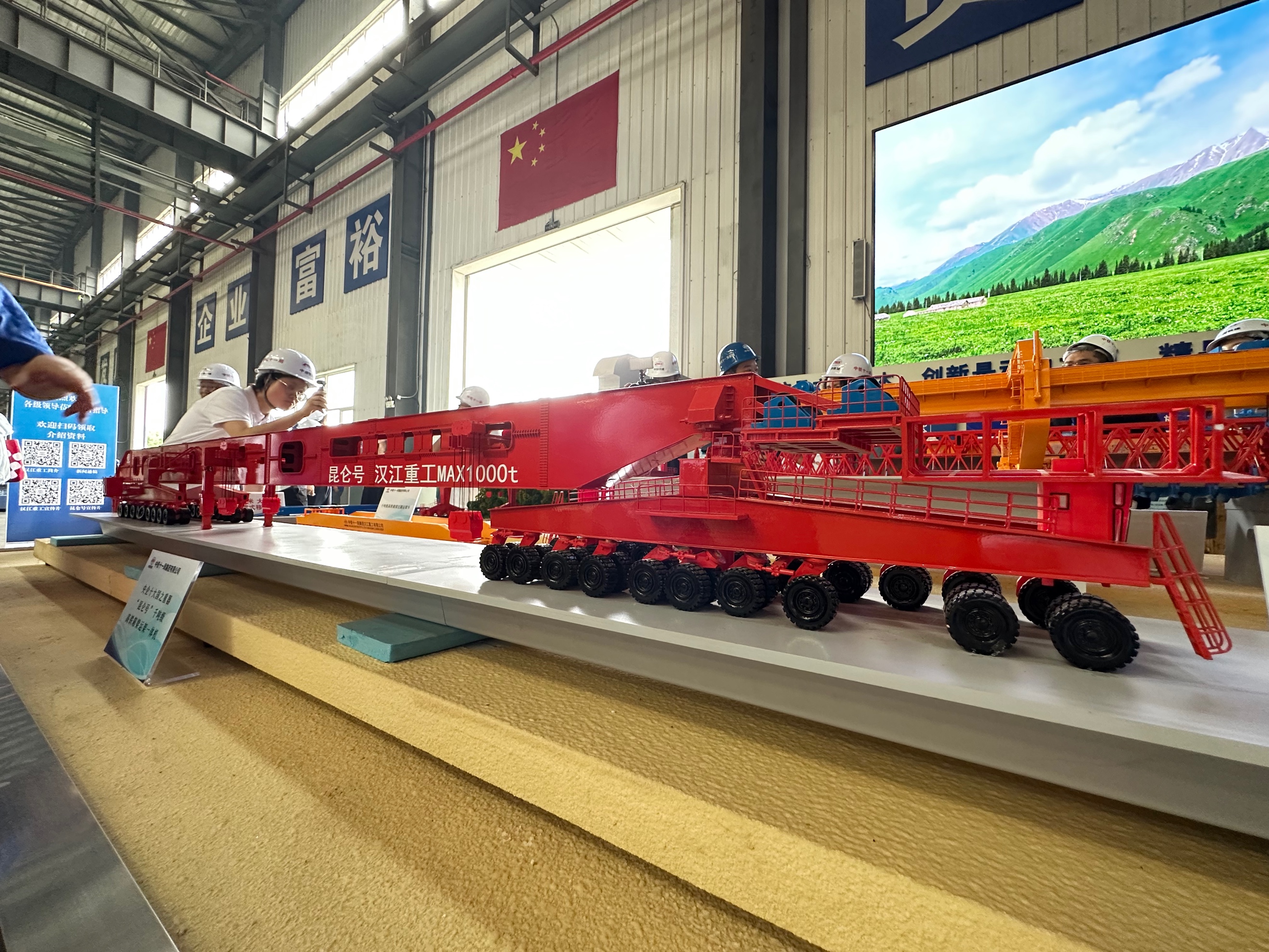
The prototype of the world's first 1,000-tonne high-speed rail girder erection machine, Kunlun, is manufactured and displayed in the Hanjiang Heavy Industry of China Railway 11 Bureau Group in Xiangyang city, Hubei province. (PHOTO: LU Chengkuan/S&T Daily)
By?LU?Chengkuan?&?ZHONG?Jianli
On its path to high-quality development, central China's Hubei province is transforming its industries through advanced science and technology.
Intelligent logistics
The Good Neighbor fresh logistics center, the only national 4A retail intelligent logistics center in Xiangyang city, has adopted smart robots to improve efficiency.
While workers direct operations from their keyboards, robots get their instructions and deliver goods automatically to the right place.
"After the analysis of an order, the AGV (Automatic Guided Vehicle) intelligent sorting system can send the name of the goods, the location code and the optimal route to the robot, which will accurately deliver the goods," said Liu Nian, director of the Good Neighbor fresh logistics center, adding that the use of robots has greatly reduced labor intensity of employees while realizing rapid and accurate stocking.
"Before the robots were used, it took us at least 60 days to train a mature sorter. Now it takes two days for a new employee to learn how to operate the AGV sorting system. Robots can quickly find the goods by recognizing the QR codes, reducing the error rate by 99 percent," said Liu.
Smart manufacturing
Smart manufacturing is transforming the traditional home appliances factory in the province.
In Midea's refrigerator factory in Jingzhou city, the "5G+intelligent manufacturing" application scenarios are everywhere, from product molding to automatic production and transportation.
On March 30, 2022, the factory was listed among the 13 latest global "lighthouse factories" in smart manufacturing announced by the World Economic Forum, becoming the second of its kind in Hubei province and the first in Jingzhou.
"In this 24-year old factory, we have widely introduced innovative technologies such as flexible automation, Internet of Things and AI to create a faster and more flexible supply chain response capability," said Li Zhen, general manager of Hubei Midea Refrigerator.
Li added that in building the "lighthouse factory," the labor productivity has been increased by 52 percent, the defect rate reduced by 64 percent, and the manufacturing cost for a single product decreased by 20 percent.
Fantasy culture
The application of cutting-edge technologies such as virtual reality, AI, and metaverse has also given new momentum to the cultural and tourism industry of Hubei.
The Fantasy Valley in Xiangyang city is China's first space exploration theme park, merging technology and fantasy culture.
The 7D cinema themed "Interstellar Adventure" is one of the 11 high-tech venues created in the park, which combines digital film and television with virtual reality, creating immersive interstellar roaming experiences for audiences when watching ball screen movies.
As of June 2023, the park had received nearly seven million visitors since its opening in 2020, and about 1.56 million visitors in the first half of 2023 alone.
The trio will conduct a series of experiments in fields such as life science, fluid physics, combustion science and materials science. Notably, this is the first time that fruit flies have been taken on a Chinese space mission as experimental subjects. What made scientists choose fruit flies? What experiment will they undergo?
